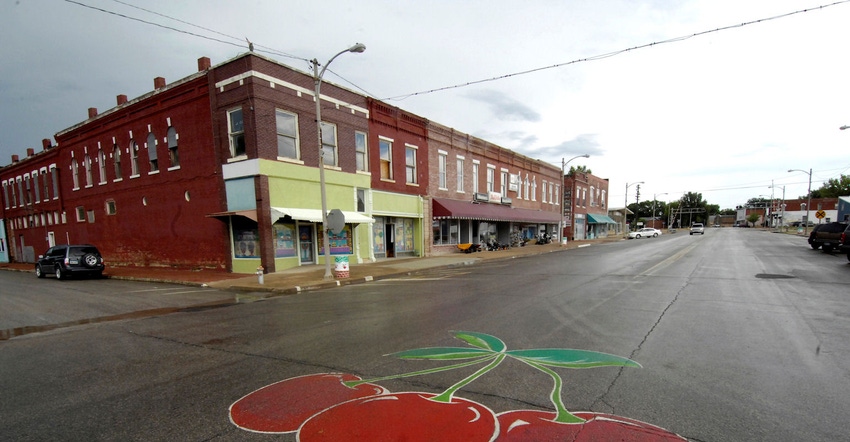Farm Bureau details in friend-of-the-court brief how internet sales tax loophole costs rural businesses.

The stores that line the streets of small and rural towns offer essential goods and services to the farmers and ranchers who work in the fields that surround them. Farmers depend on local stores not only for convenience but also to support their families, provide jobs, generate tax revenue and give vibrancy to community life, but hometown businesses are at a distinct disadvantage when they compete with online-only retailers that don’t have to collect sales tax.
The American Farm Bureau Federation and South Dakota Farm Bureau Federation asked the Supreme Court to take up a case that could do away with internet retailers’ ongoing refusal to collect sales taxes – a policy that only adds to the economic pain felt in so much of rural America today. They made their arguments in a friend-of-the-court brief filed in South Dakota vs. Wayfair Inc., Overstock.com Inc. & Newegg Inc.
“When a family-owned grocery, drugstore or gift shop is forced to shutter its doors after generations of serving a town’s citizens, it does not merely represent the loss of one business; it also often means another empty storefront in an already struggling downtown, the loss of jobs (including off-farm jobs of family farmers and their spouses) and less foot traffic for the neighboring shops,” the Farm Bureau wrote. “It also inevitably means less revenue for critical public services, such as emergency responders, law enforcement and educators.”
Noting that the Supreme Court’s decision in this case won’t solve all of rural Main Street’s problems, the brief explains that “it would at least foster a more level playing field between large internet retailers and local stores, thereby protecting not only sales tax revenue but jobs and a sense of community.”
Real-world effects of the internet sales tax loophole can be severe. “The departure of a local general store can leave a rural town with no grocery or pharmacy within a 50-mile radius. This is not uncommon. Rural grocery stores are slowly disappearing across the nation, with a particularly pronounced decline in Midwestern and Great Plains states. …. As internet retailers expand into the grocery and fresh market business, rural communities can expect further closures of rural grocery and general stores,” the brief warned.
In rural Iowa, for example, 43% of grocery stores in towns with populations of fewer than 1,000 people have closed, and the number of grocery stores across the state dropped by almost half from 1995 to 2005.
The brief said this case also offers a golden opportunity for the court to jettison the long-outdated rule from Quill Corp. vs. North Dakota, 504 U.S. 298 (1992), which prevents states from collecting sales tax from retailers that lack an in-state physical presence.
The brief stated that the “physical presence requirement robs state and local governments of hundreds of billions of dollars in revenue, disadvantages brick-and-mortar businesses by subsidizing their internet-only competitors and inexplicably discriminates against interstate commerce itself.”
“Customers may choose less costly online shopping when they can afford to wait, but they will suffer when they have to drive an hour for milk or a simple pain reliever for a sick child. Thus, the loss of local stores accelerates the spiral of local economic decline as rural life becomes equated with the absence of convenient access to basic goods,” the brief added.
About the Author(s)
You May Also Like




.png?width=300&auto=webp&quality=80&disable=upscale)
